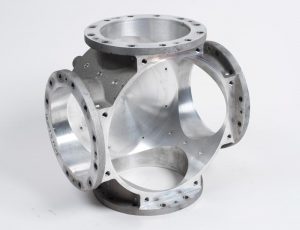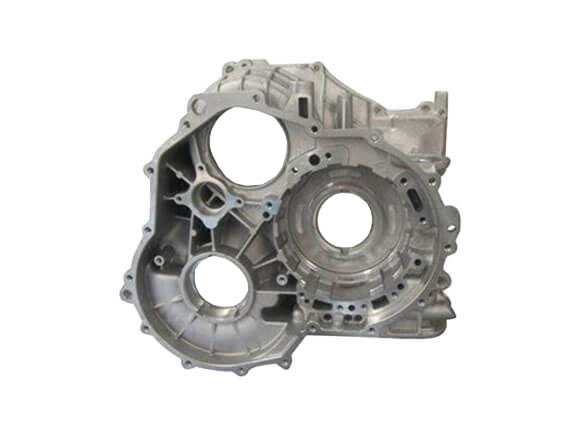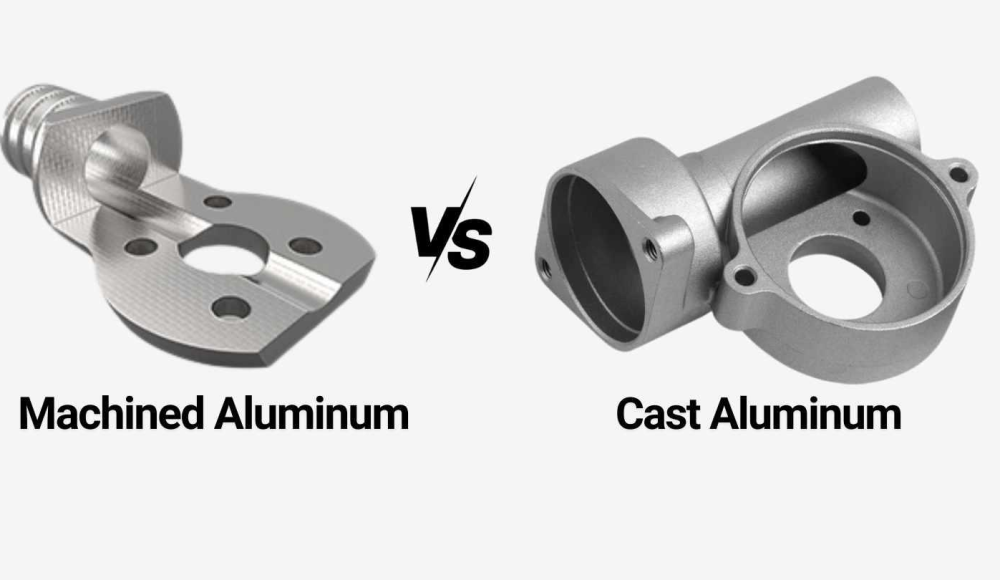The benefits of using Precision aluminum casting in industrial manufacturing
Wiki Article
Exploring the Cutting-edge Procedures Behind Modern Aluminum Shop Operations
Modern aluminum foundry procedures are undertaking significant transformation. Automation and AI are improving production methods, improving both performance and precision. The combination of 3D printing is streamlining mold and mildew production, while sustainability techniques are ending up being extra vital. Each of these advancements plays a vital duty in redefining the market. Nevertheless, the implications of these changes extend beyond mere production efficiency. What challenges and opportunities exist in advance for aluminum factories in this evolving landscape?The Function of Automation in Light Weight Aluminum Foundries

Moreover, automation adds to enhanced safety and security standards within the factory environment. By transferring dangerous jobs to makers, human workers can concentrate on managerial roles and quality assurance, minimizing the risk of mishaps. In addition, information analytics originated from automated procedures give valuable understandings right into operational performance, causing much better decision-making and continuous improvement. As the need for aluminum products grows, the adoption of automation technologies will likely increase, further changing the landscape of light weight aluminum factory procedures.
Improvements in Spreading Technologies
Recent improvements in casting technologies are changing aluminum shop operations. Technologies such as 3D printing combination, advanced alloy formulas, and automated process optimization are boosting effectiveness and product high quality. These advancements are essential in fulfilling the advancing needs of the market.3D Printing Assimilation
Integrating 3D printing technology right into light weight aluminum shop procedures has actually revolutionized traditional casting approaches, enhancing both effectiveness and accuracy. This cutting-edge technique enables the fast manufacturing of complex molds and cores, significantly minimizing preparations and material waste. By using additive manufacturing, foundries can develop intricate geometries that were difficult or previously tough to accomplish with standard strategies. The versatility of 3D printing additionally allows quick style alterations, promoting an extra dexterous production process. Furthermore, this assimilation sustains making use of lightweight structures, which is significantly essential in markets such as auto and aerospace. As light weight aluminum shops remain to take on 3D printing, they place themselves at the forefront of technological development, driving enhancements in item high quality and operational capabilities.Advanced Alloy Formulations
The development of innovative alloy formulations has substantially boosted spreading modern technologies in aluminum shop operations. These solutions incorporate numerous aspects, such as copper, silicon, and magnesium, to improve mechanical homes and thermal resistance. By customizing the composition of aluminum alloys, manufacturers can achieve certain performance qualities that satisfy the demands of varied applications, from auto elements to aerospace frameworks. Making use of innovative alloys likewise contributes to decreased weight and increased stamina, which are essential aspects in modern-day design. Additionally, innovations in alloy development allow better fluidness during spreading, causing enhanced surface area finishes and decreased defects. Overall, advanced alloy solutions stand for a significant jump forward, positioning light weight aluminum factories to meet the developing needs of various sectors efficiently.Automated Process Optimization
Improvements in casting innovations have actually led the way for automatic procedure enhancement in light weight aluminum shop operations. By incorporating sophisticated software program and real-time information analytics, shops can now enhance manufacturing processes and enhance quality assurance. Automated systems keep track of variables such as temperature level, pressure, and cooling rates, permitting instant changes that reduce flaws and waste. Furthermore, artificial intelligence formulas assess historic performance information to anticipate suitable settings, thereby enhancing efficiency and decreasing cycle times. Robotics also play a considerable function, dealing with repetitive tasks that enhance safety and security and accuracy. On the whole, these innovations not only drive operational performance yet additionally make it possible for factories to meet the growing demand for top quality aluminum components in various markets.Smart Manufacturing and Industry 4.0 Assimilation
The combination of Smart Production and Industry 4.0 within aluminum shops is transforming functional efficiency. By leveraging IoT technologies, automation, and robotics, foundries can optimize production procedures and minimize downtime. Furthermore, data analytics supplies essential understandings that improve decision-making and drive continual enhancement.IoT in Foundry Workflow
As manufacturers significantly accept the Net of Things (IoT), shop operations are experiencing a transformative shift towards clever production and Industry 4.0 combination. aluminum casting. IoT modern technologies enable real-time data collection and analysis, enhancing decision-making processes and functional efficiency. Sensing units and connected devices keep track of tools efficiency, product usage, and environmental problems, enabling positive upkeep and resource optimization. This connectivity cultivates an extra agile manufacturing environment, where modifications can be made promptly in reaction to market needs. Furthermore, IoT assists in boosted traceability and quality control, as data from the whole production cycle can be quickly accessed and analyzed. On the whole, the combination of IoT in shop procedures substantially boosts efficiency and drives innovation in light weight aluminum production proceduresAutomation and Robotics Combination
Automation and robotics integration is revolutionizing light weight aluminum foundry operations by enhancing effectiveness and accuracy. This transformative strategy improves processes such as molding, putting, and completing, decreasing human mistake and increasing outcome uniformity. By employing innovative robotic systems, shops can attain higher production prices while maintaining rigid top quality requirements. Automated systems also allow real-time monitoring and flexible control, permitting speedy changes to production parameters. In addition, the combination of robotics minimizes labor prices and mitigates security dangers related to manual handling of liquified steel. As factories accept smart production concepts intrinsic in Industry 4.0, the harmony in between automation and robotics strengthens their competitive edge, paving the method for sustainable development and innovation in the light weight aluminum spreading industry.Information Analytics for Performance
Utilizing data analytics greatly boosts efficiency within light weight aluminum shop procedures, straightening with clever manufacturing and Sector 4.0 principles. By leveraging real-time data collection and evaluation, factories can monitor manufacturing processes, forecast devices failures, and enhance resource appropriation. This data-driven technique promotes informative decision-making, enabling supervisors to enhance and identify bottlenecks process. Furthermore, predictive analytics equips foundries to prepare for market needs, thus minimizing waste and making certain prompt product distribution. Integration of information analytics with IoT tools improves functional presence, fostering a positive upkeep culture. Eventually, implementing these sophisticated logical techniques not just increases performance however also drives technology, positioning aluminum factories to satisfy the evolving demands of the industry while preserving competitive sides in a rapidly altering landscape.Sustainable Practices in Aluminum Casting
While the light weight aluminum spreading market has actually generally encountered ecological challenges, many foundries are now taking on lasting practices to mitigate their influence (Aluminum Casting Company). A significant focus has gotten on reusing aluminum scrap, which not only lowers waste but also conserves energy compared to main light weight aluminum manufacturing. Cutting-edge melting modern technologies, such as induction heating systems, improve power effectiveness and lower look at more info greenhouse gas emissionsAdditionally, factories are implementing closed-loop water supply to minimize water consumption and reduce thermal pollution. Making use of environment-friendly binders in mold-making procedures is getting traction, more lowering dangerous emissions.
Some facilities are investing in sustainable energy resources to power procedures, aligning with international sustainability objectives. By incorporating these methods, the aluminum spreading market is progressing towards a much more eco responsible future, demonstrating that economic development can exist side-by-side with ecological stewardship - Precision aluminum casting. These efforts mirror a dedication to sustainability and the value of ecological accountability in production
Top Quality Control Innovations
As the light weight aluminum casting sector breakthroughs in the direction of sustainability, the significance of top quality control developments ends up being progressively apparent. Modern light weight aluminum factories are taking on innovative innovations to boost their quality guarantee procedures. Strategies such as real-time tracking and data analytics enable suppliers to discover issues and disparities early in the production cycle. Executing automatic assessment systems furnished with equipment discovering formulas warranties that products meet strict top quality criteria while decreasing human error.from this source Furthermore, the assimilation of non-destructive testing techniques, such as ultrasonic and radiographic examinations, offers much deeper understandings right into the honesty of castings without damaging the material. These advancements not just enhance item dependability yet additionally reduce waste, lining up with sustainability goals. In enhancement, the fostering of standardized top quality frameworks aids improve procedures throughout different foundries, assuring consistency in result. Collectively, these innovations are reshaping quality assurance, fostering a society of quality within the aluminum casting market.
Future Patterns in Aluminum Factory Operations
What developments exist ahead for light weight aluminum shop operations? The future of light weight aluminum shops is poised for transformation through innovations in automation, expert system, and lasting methods. The combination of robotics and automated systems is expected to improve performance and precision in the spreading procedures, decreasing human mistake and labor expenses. In addition, AI-driven analytics will enable real-time surveillance and predictive maintenance, optimizing functional efficiency and lessening downtime.Sustainability stays a focal point, with shops increasingly embracing eco-friendly methods, such as making use of recycled light weight aluminum and establishing low-emission melting innovations. Advancements in 3D printing are additionally prepared for to reinvent mold-making, allowing for complex geometries and minimized material waste. As the industry welcomes digitalization, data-driven decision-making will come to be critical, making it possible for factories to react promptly to market needs. Jointly, these fads guarantee to redefine light weight aluminum shop operations, making them much more efficient, lasting, and adaptable to future challenges.

Often Asked Questions
What Precaution Are Executed in Aluminum Foundry Operations?
Aluminum foundry operations implement numerous precaution, consisting of individual safety equipment, air flow systems to take care of fumes, normal safety and security training, emergency situation response plans, and rigorous tracking of temperature and equipment to avoid mishaps and assurance employee safety.How Do Shops Handle Workforce Training for New Technologies?

What Materials Are Typically Reused in Light Weight Aluminum Foundries?
Light weight aluminum factories typically reuse scrap light weight aluminum, consisting of post-consumer items like drink containers, automobile parts, and construction products. This recycling process decreases waste and saves resources, adding to an extra sustainable aluminum production industry.Exactly How Does Aluminum Casting Influence the Environment?
Aluminum casting impacts the setting through energy-intensive processes, greenhouse gas emissions, and potential neighborhood pollution. Nevertheless, improvements in reusing and lasting techniques can minimize these results, advertising a more green strategy to light weight aluminum manufacturing.What Are the Common Lead Times for Aluminum Casting Projects?
Common preparation for light weight aluminum spreading tasks differ significantly, typically ranging from two to 6 weeks. Variables influencing these timelines consist of intricacy, order dimension, and material availability, impacting total manufacturing timetables in factory procedures.
Automation significantly plays a necessary role in light weight aluminum factories, enhancing performance and precision these details in the production process. Developments in casting innovations have led the method for automated procedure improvement in light weight aluminum foundry operations. Taking advantage of information analytics considerably enhances efficiency within aluminum shop procedures, straightening with smart manufacturing and Sector 4.0 concepts. A significant emphasis has actually been on recycling light weight aluminum scrap, which not only reduces waste but also conserves energy contrasted to main aluminum manufacturing. Aluminum foundries typically reuse scrap aluminum, including post-consumer items like drink cans, auto components, and building materials.
Report this wiki page